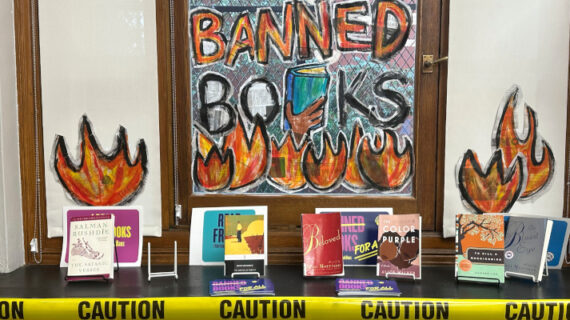Some decisions that we make in life are intuitive and others carefully reasoned. Even when we think a decision is simply reflexive, there is usually a great deal of experience that guides what is seemingly a rapid and easy call. After more than 40 years of experience as a cardiologist, I have developed honed instincts for what seems minor and what raises a red flag that triggers the need for high-level investigation to exclude serious illness. I don’t think I am wrong very often in following my medical instincts, but this may not be true for many other decisions that seem obvious but are not. There are many times that I have misjudged people by first impressions or let bias unintentionally cloud my judgement. I’m sure I am not alone.
Thinking Fast and Slow is a book by Daniel Kahneman, a Nobel laureate in behavioural economics. My wife loved it and suggested that I read it as well. It describes the paths we take to make decisions and how biases in judgement sometimes lead us to bad decisions. These biases cause us to ignore relevant cues and important data, or evaluate the information we have against the wrong comparison group. This can lead to inaccurately weighing the evidence needed to make the best decision.
I was recently asked to guess the percentage of all workers who worked virtually rather than in person during the pandemic. I guessed 70 percent and a recent group of friends estimated a range of 60-90 percent. The correct answer was 30 percent. We were biased by our association with white-collar workers and professionals who mainly worked virtually as opposed to other essential workers who had to personally interact with others to perform their job.
If asked whether a lean, shy, and well-read man is more likely to be a librarian or a construction worker, the obvious choice is a librarian as he fits the stereotype. However, given that there are many more male construction workers than librarians, he is much more likely to be a shy, well-read construction worker.
Government leaders often make painfully slow decisions that should be made quickly. Conversely, those that require careful, thoughtful consideration are made far too quickly. Decisions are often guided by political expediency rather than data. The lack of rapid distribution of booster shots to vulnerable seniors at a time when we have excess vaccine supply, even wasting large numbers of doses that expire, is a sad example of ponderous inaction. The B.C. government has now made the right decision to offer boosters to older and vulnerable people, with a timeline for offering it to others with likely waning immunity. It is time for Ontario, supported by the federal government, to do the same.
The reflexive decision to change the name of Dundas street in Toronto without fully understanding the financial cost and unintended consequences of an overly exuberant cancel culture would benefit from slow thinking. Elsewhere, the New York Times recently detailed the reversal of decisions by many cities to defund or slash police budgets, which were rashly made in response to protests over the police killing of George Floyd. The result, as many expected, was a rise in violent crime and the ensuing political pressure from diverse groups to reverse the exodus of many police officers from the force. Increased funding of a better-trained police force was the thoughtful consensus of bipartisan stakeholders made in order to improve public safety. This occurred in many cities including New York, Chicago, Los Angeles, Dallas, and even Burlington, Vermont, a city that Bernie Sanders once led as mayor.
The frequent repetition of disinformation on social media plays into this bias. It promotes the unwillingness to consider other reasonable but alternative explanations. The revelations about the failings of social media giants such as Facebook to correctly identify and limit disinformation demonstrates how it can inflame hatred and even inspire some to insurrection.
Kahneman asserts that many people make assumptions based on the limited information they have that confirms their biases rather than seeking information they don’t yet know but which could change their minds. Many will read this as an exhortation for the other side (whoever that may be). It is not. Fundamentally, the responsibility lies with each of us to first enact these principles of fair and careful consideration in the practice of our own lives.
What is missing in so much of our discourse today is the ability to pause, think slowly, and truly listen to those whose views we may reflexively disagree with. Reaching some kind of consensus, however small, is not as viscerally satisfying in the moment as outright opposition of our enemies, but it is integral to the well-functioning society we all claim to want in the long term. Just taking the time to consider what facts you yourself may be missing, and how that missing context can alter your too-fast judgement, will lessen the polarization of opinion and action that is so corrosive.
As our lives slowly return to normal after the physical and emotional restrictions imposed by this pandemic, we as individuals have to understand how to better think fast and slow. We can think quickly when we have extensive and diverse experience. We need to act slowly when issues are complex and not seek simplicity by viewing the solutions through a myopic lens of bias and inadequate information.
We have witnessed the swearing-in of a new federal government with a shuffled cabinet. Will they be better prepared to act quickly after making thoughtful fact-based decisions to confront our many challenges? I hope they do, but fear that they have neither the intellectual bandwidth nor the political courage to make the obvious choices quickly and the harder ones with consensus, ethics, and based on data rather than expediency.
Viewpoint
Harry Rakowski: Thinking fast, thinking slow, and thinking not at all
Daniel Kahneman's book Thinking Fast and Slow contains enduring lessons for our polarized times




